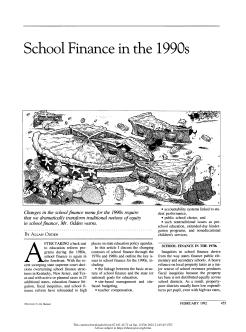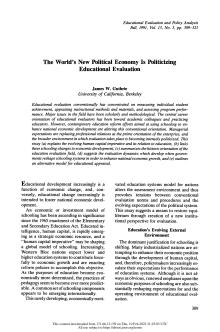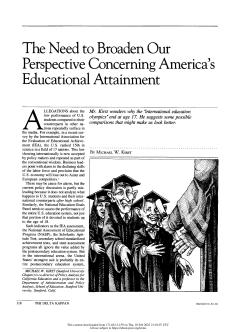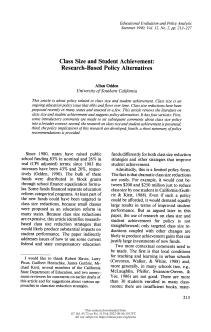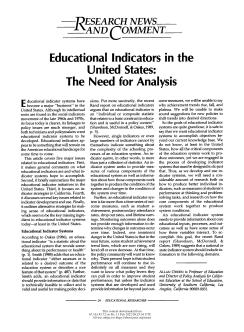Published
Summary
School finance has become a prominent issue again due to court decisions and litigation in several states. This article explores school finance changes in the 70s and 80s and outlines key issues for the 90s, including the relationship between finance and education goals, site-based management, teacher pay, accountability, school choice, and nontraditional issues such as preschool and non-educational services for children.
Published
Summary
Traditionally, educational evaluation has focused on measuring student achievement and program performance. However, education reforms are now linking schooling to economic development, leading to a shift towards managerial expectations and politicization of the field. This article explains the human capital imperative and its relation to education, summarizes the history of educational evaluation, and outlines an alternative model for educational appraisal in the context of government-led education system reforms aimed at enhancing national economic growth.
Published
Summary
The U.S. ranks low in international education comparisons, but the discussion is misleading because it does not look at postsecondary education. The value added by the postsecondary education system, including community colleges, trade schools, and universities, is ignored. The U.S.'s strongest suit is probably its entire postsecondary education system in the international arena.
Research-Based Policy Alternatives
Published
Summary
This article delves into the issue of class size in education, examining how it affects student achievement and suggesting policy alternatives. With some states proposing and implementing class size reductions, the analysis discusses the research on the subject and its policy implications. The piece is divided into four sections, starting with an introduction that provides context for the class size debate.
The Need for Analysis
Published
Summary
Educational indicator systems are in demand in the US due to their strong linkages to policy issues. This article covers five major issues related to educational indicators, including what they are, major initiatives in the US, and indicator strategies in California. It also discusses key issues related to indicator development and use and outlines alternative strategies for making sense of educational indicators, which are currently missing in the US.
